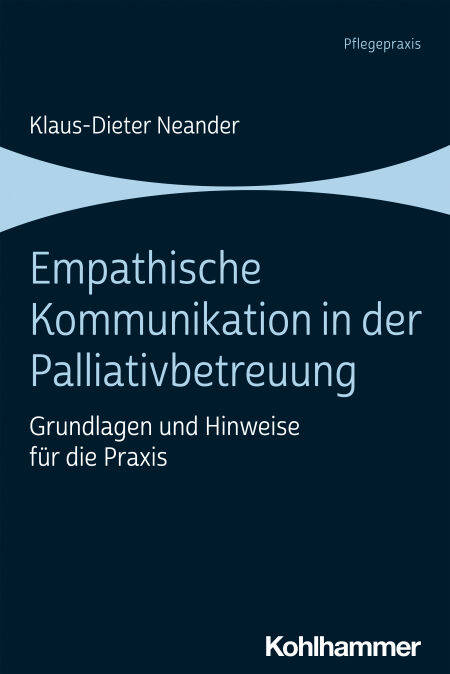
Bedankt voor het vertrouwen het afgelopen jaar! Om jou te bedanken bieden we GRATIS verzending (in België) aan op alles gedurende de hele maand januari.
- Afhalen na 1 uur in een winkel met voorraad
- In januari gratis thuislevering in België
- Ruim aanbod met 7 miljoen producten
Bedankt voor het vertrouwen het afgelopen jaar! Om jou te bedanken bieden we GRATIS verzending (in België) aan op alles gedurende de hele maand januari.
- Afhalen na 1 uur in een winkel met voorraad
- In januari gratis thuislevering in België
- Ruim aanbod met 7 miljoen producten
Zoeken
Empathische Kommunikation in der Palliativbetreuung E-BOOK
Grundlagen und Hinweise für die Praxis
Klaus-Dieter Neander
E-book | Duits
€ 30,99
+ 30 punten
Uitvoering
Omschrijving
Professional palliative care not only involves providing demanding medical and nursing care for clients, but is also emotionally burdensome for everyone involved. Worries, fears, hopelessness, despair and hatred may be expressed both verbally and non-verbally, creating a strained atmosphere. How should staff, relatives and clients speak to each other, what is the best way of dealing with the situation? The Rosenberg approach to empathetic communication offers essential ideas and specific aids by enabling us to recognize needs and wishes and find new ways of living together. This volume develops the concept of ?nonviolent communication= for practical application in the field of palliative care. On the basis of examples drawn from real life, it becomes clear that everyone involved is able to benefit. Nonviolent communication requires nothing less than a ?change in behavior= & a difficult journey, but rewarding nevertheless, especially in the field of palliative care.
Specificaties
Betrokkenen
- Auteur(s):
- Uitgeverij:
Inhoud
- Aantal bladzijden:
- 210
- Taal:
- Duits
Eigenschappen
- Productcode (EAN):
- 9783170408548
- Verschijningsdatum:
- 16/11/2021
- Uitvoering:
- E-book
- Beveiligd met:
- Digital watermarking
- Formaat:
- ePub

Alleen bij Standaard Boekhandel
+ 30 punten op je klantenkaart van Standaard Boekhandel
Beoordelingen
We publiceren alleen reviews die voldoen aan de voorwaarden voor reviews. Bekijk onze voorwaarden voor reviews.









